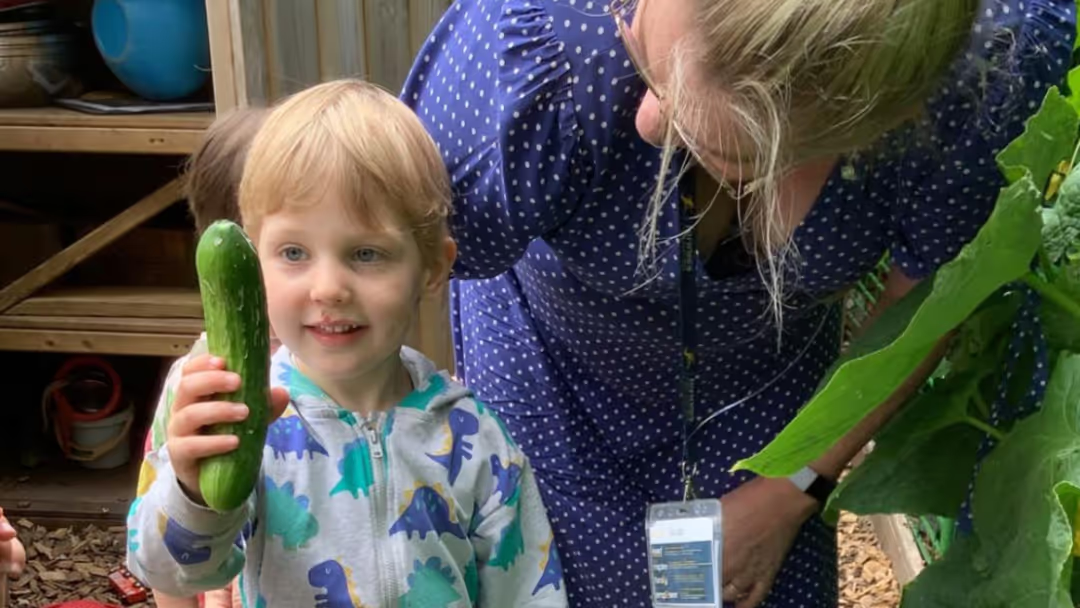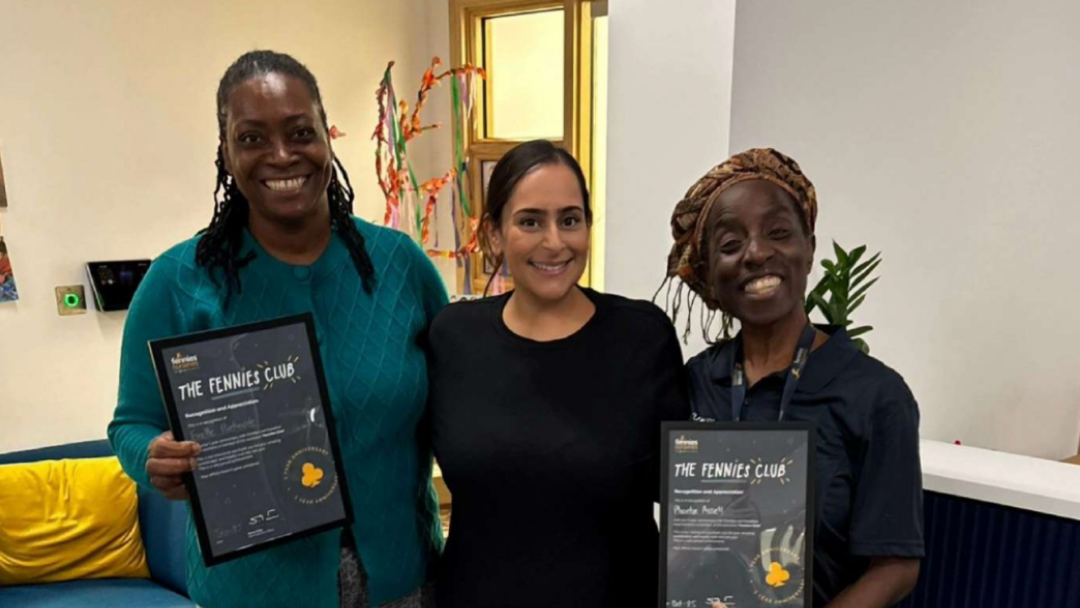Easy Guide on Nutritional Needs for Toddlers (1-3 years)
In this easy guide, we will explore the essential nutritional needs for toddlers aged 1 to 3 years. During this critical period of growth and development, providing proper nutrition is vital for their overall well-being. We will delve into the importance of nutrition for toddlers, establish healthy eating habits, discuss their specific nutritional needs, and offer tips on planning balanced meals and dealing with picky eaters.
- Understanding the Importance of Nutrition for Toddlers
- The Role of Nutrition in Toddler Development
- Key Nutrients for Toddlers and Their Functions
- Establishing Healthy Eating Habits
- Nutritional Needs of Toddlers
- Planning Balanced Meals for Toddlers
- Portion Sizes for Toddlers
- When to Seek Professional Help
Nutrition and Healthy Eating at Fennies
Fennies has been working in partnership with Registered Nutritionists from the Early Years Association (EYA) Nutrition Programme since 2018. The EYA believes that good nutrition is one of the fundamentals of children’s well-being. Focussing on a consistent and evidence-based approach, we have worked with Fennies to establish a whole-setting approach to healthy eating and all Fennies nurseries are working towards an accreditation to show their commitment to nutrition.

Understanding the Importance of Nutrition for Toddlers
Toddlers experience rapid growth and development, both physically and mentally. Proper nutrition plays a crucial role in supporting their expanding needs during this critical phase. A well-balanced diet not only fuels their energy levels but also supports brain development, strengthens the immune system, and builds healthy bones and muscles.
The Role of Nutrition in Toddler Development
Nutrition is directly linked to various aspects of toddler development. Adequate consumption of essential nutrients supports brain development, ensuring optimal cognitive function. Nutrients like omega-3 fatty acids and iron play key roles in brain health and overall cognitive abilities.
Nutrition also influences a toddler's immune system, helping them fight off infections and illnesses. Nutrients such as vitamin C and zinc are essential for maintaining a robust immune system, reducing the risk of infections and promoting faster recovery.
In addition, proper nutrition supports the growth of healthy bones and muscles. Nutrients like calcium, vitamin D, and protein are critical for bone development, ensuring strong skeletal structure and optimal muscle growth.

Key Nutrients for Toddlers and Their Functions
Let's take a closer look at some key nutrients that are crucial for the healthy development of toddlers:
Calcium
This nutrient is essential for building strong bones and teeth. It also helps with proper nerve and muscle function.
Vitamin D
Working in conjunction with calcium, vitamin D aids in the absorption of calcium and contributes to the development of healthy bones.
Iron
Iron is necessary for the production of red blood cells, which carry oxygen throughout the body. Sufficient iron intake prevents iron-deficiency anaemia, ensuring healthy growth and development.
Omega-3 fatty acids
These healthy fats support brain development and cognitive function. They can be found in fatty fish, flaxseeds, and chia seeds.
Vitamin C
As a powerful antioxidant, vitamin C helps boost the immune system and aids in the absorption of iron. It is abundant in fruits like oranges, strawberries, and kiwis.
Zinc
Zinc is important for proper immune function and wound healing. It can be found in foods like meat, seafood, nuts, and seeds.

Can I have confidence that my child is getting the right balance of foods at Fennies?
Yes. All meals, snacks and drinks follow strict criteria and must be approved by Registered Nutritionists before the nursery can achieve their menu accreditation. These criteria are based on evidence-based guidelines for early years nutrition written and endorsed by the British Nutrition Foundation.
As well as ensuring the menus provide nutrient and energy-dense foods with a particular focus on key nutrients important for the early years, the criteria looks for a balance of foods across the day and emphasises the importance of variety as a way of exposing children to lots of different foods. All menus and recipes at Fennies are developed using the EYA Nutrition Programme criteria and are checked and approved by a Registered Nutritionist before being implemented into the nursery kitchens. Menus are developed twice a year and have a 4-week rotating menu including breakfast, lunch, tea and two snacks a day.
Establishing Healthy Eating Habits at Home
Introducing and maintaining healthy eating habits from an early age sets the foundation for a lifelong relationship with nutritious food. Here are a few key strategies to help establish healthy eating habits for your toddler:
The Importance of Regular Meal Times
Consistency is vital when it comes to mealtimes for toddlers. Aim for three meals and two to three snacks each day, spaced evenly throughout the day. Regular meal times create a sense of routine and help promote healthy hunger cues.
Sitting down as a family for meals can also positively influence your toddler's eating habits. This shared experience encourages them to try new foods and provides an opportunity for role modelling healthy eating behaviours.
Encouraging a Variety of Foods
Introduce a wide range of foods to your toddler's diet, including fruits, vegetables, whole grains, lean proteins, and dairy products. Offer diverse flavours, textures, and colours to enrich their palate and expose them to new tastes.
Even if your child initially shows resistance to certain foods, continue to offer them in small portions and in different preparations. It can take multiple exposures before they develop a preference for new foods, and repeated exposure helps expand their food repertoire.

Nutritional Needs of Toddlers
Daily Calorie Requirements for Toddlers
Toddlers' calorie needs vary depending on their age, gender, weight, and activity level. On average, they require around 1,000 to 1,400 calories per day. However, it's important to remember that these are general guidelines, and individual needs may vary.
Offering a variety of nutrient-dense foods throughout the day helps ensure that their calorie intake is well-distributed and provides the necessary energy for growth and development.
Essential Vitamins and Minerals for Toddlers
In addition to calories, toddlers require adequate amounts of vitamins and minerals to support their evolving needs. Here are some key nutrients and their sources:
- Vitamin A: Found in orange and dark green vegetables, as well as eggs and dairy products, vitamin A supports healthy vision and immune function.
- B Vitamins: This group of vitamins is crucial for energy production and overall growth. They can be obtained from whole grains, meat, fish, nuts, and legumes.
- Vitamin E: Present in nuts, seeds, and vegetable oils, vitamin E is an antioxidant that supports cell health and immune function.
- Iodine: This mineral is important for thyroid function and can be found in iodized salt, seafood, and dairy products.
- Magnesium: Found in whole grains, leafy greens, nuts, and seeds, magnesium supports bone health, muscle function, and energy metabolism.
Planning Balanced Meals for Toddlers
Components of a Balanced Meal
A well-balanced meal for a toddler should include a variety of food groups, ensuring they receive a wide range of nutrients. Here is a general breakdown of the components:
Fruits & Vegetables
These should comprise around half of your toddler's plate. Aim for a colourful assortment to provide a range of vitamins and minerals.
Whole Grains
Include whole grain bread, rice, pasta, or cereals to provide a good source of energy and fibre.
Protein
Offer lean sources of protein, such as fish, chicken, beans, or tofu, to support muscle growth and repair.
Dairy or Dairy Alternatives
Provide calcium-rich options like milk, yogurt, or fortified plant-based milks for strong bones and teeth.
Remember to encourage water intake throughout the day and limit the consumption of sugary drinks and processed foods, which provide little nutritional value.
Portion Sizes for Toddlers
Portion sizes for toddlers can be challenging to determine as their appetites vary. A general guideline is to offer small portions and let your toddler indicate their hunger and fullness cues.
Serving utensils specifically designed for toddlers can help with portion control. Additionally, listen to your child's cues and avoid pressuring them to finish their plate. Trust that they will eat until they are satisfied.
Dealing with Picky Eaters
Strategies to Encourage Healthy Eating
Many toddlers go through a phase of picky eating, where they may refuse certain foods or exhibit strong food preferences. Here are some strategies to help encourage healthy eating habits:
- Lead by example: Show enthusiasm for trying new foods and enjoy a wide variety of nutritious options yourself, makes for good role modelling.
- Make mealtimes enjoyable: Create a positive atmosphere during meals, minimising distractions and ensuring a calm environment.
- Get creative with presentation: Present foods in fun shapes or arrange them in a visually appealing manner.
- Involve your toddler: Let them participate in meal planning, preparation, and grocery shopping to foster their interest in nutritious foods.
When to Seek Professional Help
If you have concerns about your toddler's eating habits, growth, or nutrient intake, it is always advisable to seek professional guidance. A registered dietitian or paediatrician can provide personalised advice and address any specific issues or deficiencies.
By understanding the importance of nutrition for toddlers, establishing healthy eating habits, recognising their specific nutritional needs, and implementing strategies for dealing with picky eaters, you can ensure that your child receives the necessary nutrients for optimal growth and development during these crucial years.
FAQ
Subscribe to our newsletter
Stay up to date with Fennies news










